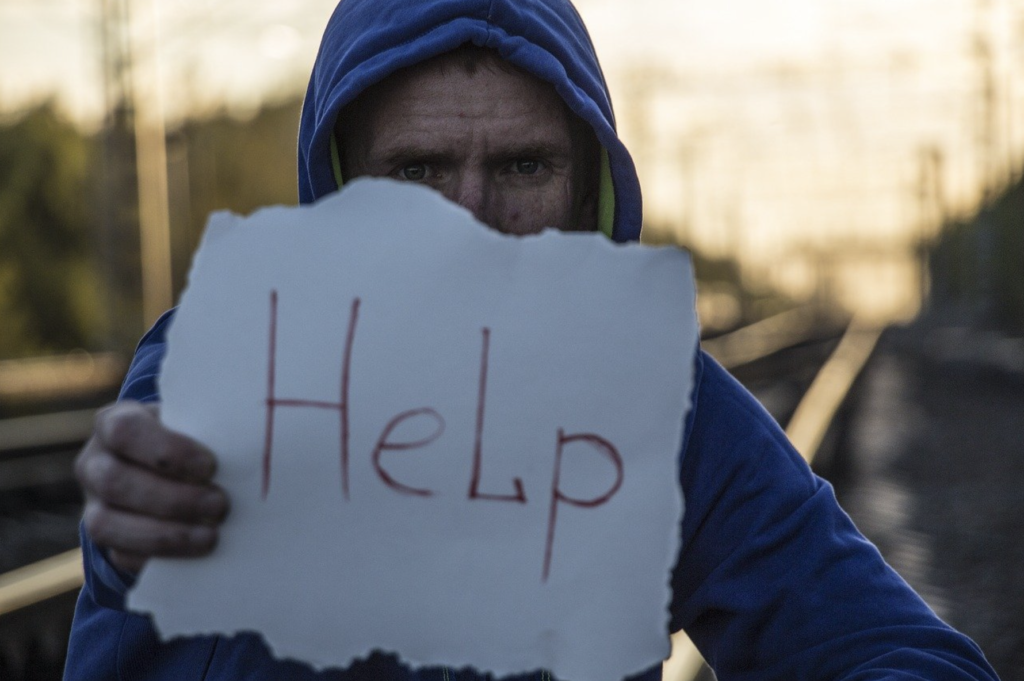
In a famous teaching of the Buddha, he advises his monks to “be islands unto yourselves,” to be their own refuge and to have no other, except, perhaps truth itself. The reasoning, he explains, is that all things are impermanent and change drives most of us to despair. Focusing on ourselves, the wisdom goes, we can work on making positive change where we are most capable and it is often most needed.
What does this mean in our lives? Surely, we might respond with the quote from John Donne (1572 – 1631) that “No man is an island. . .” And, after all, isn’t interconnectedness another central aspect of Buddhist philosophy?
It is, but the two understandings can operate at the same time. We are all deeply interconnected. Everything from the air we breathe to the food we eat to the words you read in front of you depend on other beings.
But psychologically, or perhaps spiritually, we can run into difficulty if we rely too much on others. We can see this most easily in the case of people who need external affirmation for virtually everything in their lives.
The Eight Worldly Conditions

In another teaching he put it another way, using the story of the eight worldly conditions. These are gain and loss, status and disgrace, censure and praise, and pleasure and pain. Each of these is a factor of the outside world. And, while each of these can be useful guides as we move through life, it is easy to see how people can use them to manipulate us and how the ideal person is like a rock, unmoved by them as they come and go.
Dr. Mike Brooks, a psychologist specializing in Positive Psychology and wisdom traditions including Buddhism and Stoicism, asks us to consider some things:
- We are afraid to ask a person out on a date despite having strong feelings for them.
- We don’t ask a co-worker how to use a program for fear of being judged as incompetent.
- We don’t apply for a job for fear that we won’t get hired.
- We don’t contribute some ideas at a meeting for fear of being criticized by our colleagues.
- We don’t talk to a stranger at a party for fear they might not like us.
With each of these scenarios, fear is tied to one of those worldly conditions. What if we could ask that special person out and know we’d be okay with either a yes or a no? What if we could ask for help without worry of being judged?
Don’t Take it Personally
The often very true advice that comes to mind is “don’t take it personally.” How people react to us is often more a function of their attitude and personality than it is about our actions in themselves.
According to Dr. Brooks, people really don’t care that much about us to warrant such fears in the first place. In general, people are living in their own worlds, just as we are most of the time. Sure, we might have a angry argument and fester over it for days or weeks, but how often, really, are we thinking about any other person?
If we assume that others are generally helpful and kind, just as we try to be helpful and kind, then we can overcome our fears of loss or rejection. But, we should also work on overcoming any strong desires for gain and praise. Some people might ask out an attractive acquaintance with a sense of entitlement, as if a “yes” is guaranteed. Just as a “no” isn’t guaranteed, nor is a “yes.” One must ask with openness to either scenario.
Level Two Suffering

Dr. Brooks concludes his article with a reflection on what psychologists call “level two suffering.” Level one suffering is caused by the adversities of our lives. Being poor or hungry, or stubbing your tow or breaking an arm, losing a job or a loved one—these are all causes of level one suffering.
Level two suffering is what arises from our excessive ruminations on those things. Certainly, we should think about our losses and grieve when someone or something close to us is gone. But sometimes we need to turn our mind to other things. If we get consumed in worry or grief, it can take over our lives to our detriment.
The story of the poisoned arrow
The Buddha, himself a great psychologist, knew all about level two suffering. He illustrated the phenomenon with a vivid story to his monastics. He told them of a man who had been wandering in the woods and was hit in the leg with an arrow. But it wasn’t just any arrow, it was a poisoned one.
The man’s companions saw this and immediately went into action. One prepared a tourniquet and another set forth in finding the nearest doctor with an antidote. But the man would have none of it. “Stop!” he shouted. “I want to know what wood the arrow’s shaft is made from. And from what bird do these feathers come from? Also, who shot the arrow? What were they thinking? Where do they come from?” And on and on.
Clearly, action was needed and these ruminations were only delaying this. How often are we like this? Overthinking a painful arrow in our lives when action is needed?
Focusing on these external things can consume us and leave us paralyzed. The values and virtues that will stay with us are internal. These, perhaps sadly, will often be overlooked by others. Being humble often means being overlooked as a brash and bragging person takes the spotlight. Being truly generous means giving without seeking praise. Being wise often means stepping away from conflicts rather than trying to be the best within them.
Many of the greatest people throughout history have been humble, generous, and wise in ways that weren’t recognized in their lifetimes. We’ve come to recognize them only long after, as their subtle gifts passed on through the ages. For them, this was okay. They were doing good for good’s sake. They were, to a great extent, islands unto themselves.
 Justin Whitaker, Ph.D., holds a doctorate in Buddhist ethics from the University of London. He has given lectures, and taught Buddhist studies and Philosophy at Oxford University, the University of Hong Kong, the University of Montana, and at Antioch University’s intensive study-abroad program in India. A certified meditation teacher, he is a regular contributor to Patheos.com, and Senior Correspondent for Buddhistdoor Global. He lives in Missoula with his family.
Justin Whitaker, Ph.D., holds a doctorate in Buddhist ethics from the University of London. He has given lectures, and taught Buddhist studies and Philosophy at Oxford University, the University of Hong Kong, the University of Montana, and at Antioch University’s intensive study-abroad program in India. A certified meditation teacher, he is a regular contributor to Patheos.com, and Senior Correspondent for Buddhistdoor Global. He lives in Missoula with his family.
